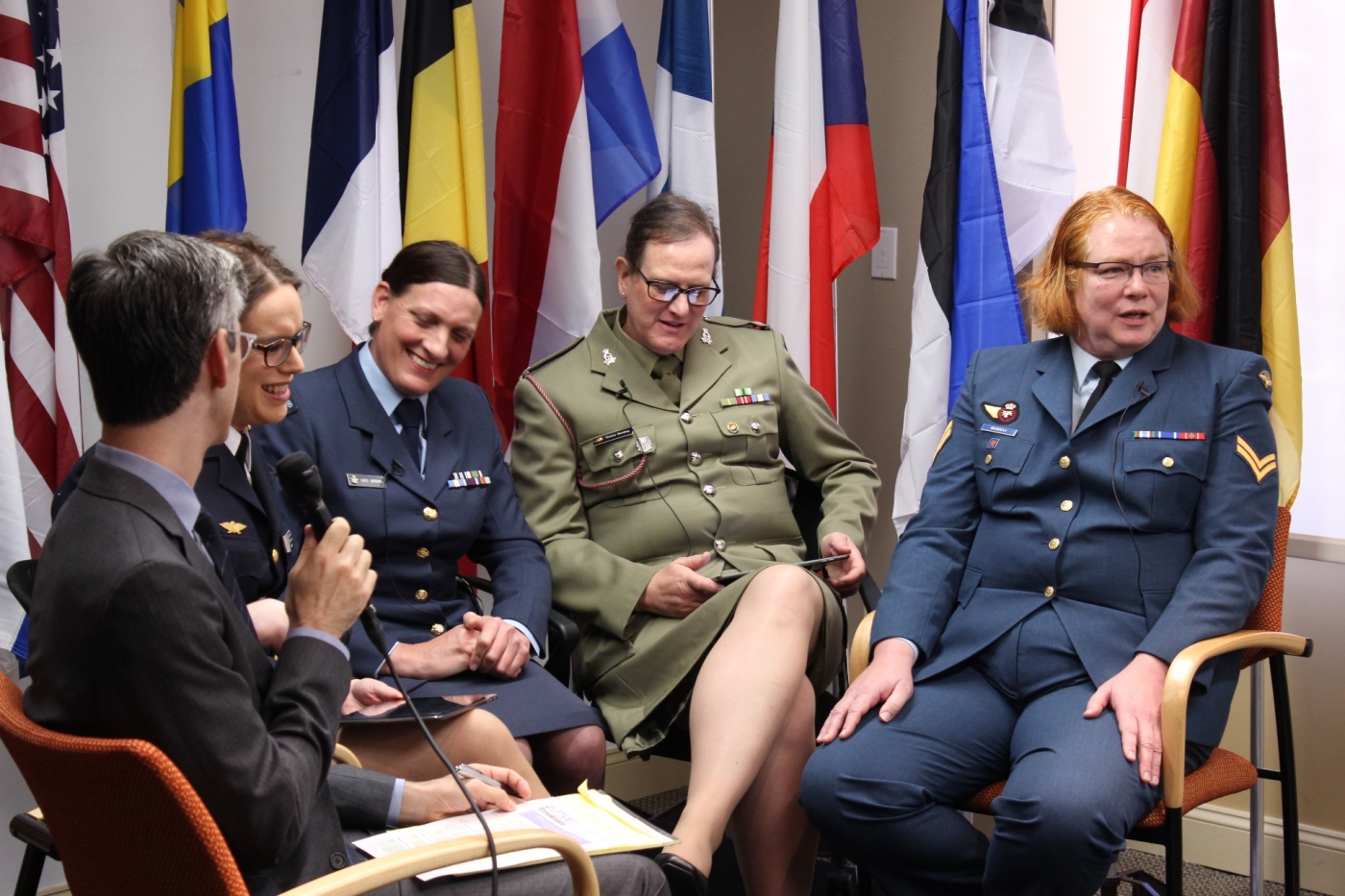
“After consultation with my Generals and military experts, please be advised that the United States Government will not accept or allow Transgender individuals to serve in any capacity in the U.S. Military,” Trump tweeted. “Our military must be focused on decisive and overwhelming victory and cannot be burdened with the tremendous medical costs and disruption that transgender in the military would entail.”
Within hours, the Canadian Armed Forces made its position clear in a tweet of its own: “We welcome Cdns of all sexual orientations and gender identities. Join us!”
Canada is one of 18 countries that allow transgender military personnel. The list includes Israel, Australia, Britain, Germany and France.
Defence Minister Harjit Sajjan’s office noted that transgender individuals have been allowed to serve openly in Canada’s military for 25 years.
“Our position on their valuable service in the Canadian military has not changed,” spokeswoman Jordan Owens said in a statement. In fact, it is being updated, with the revised policy expected to be implemented this fall.
A military must be a reflection of the society it is tasked to defend. The more a military limits who can serve on grounds other than physical or mental capability, the more it risks becoming a closed society that is isolated and alienated from the public at large and the values that public holds dear.

Canada’s military has been a leader in the field of inclusiveness and its evolution has spanned the political spectrum of government. It’s a matter of prudence and pragmatism, especially in Canada, where the understaffed ranks of our forces can ill afford to exclude anyone.
Shortly after Trump’s tweet, Marine General Joseph Dunford, chairman of the U.S. Joint Chiefs of Staff, wrote a memo saying the military will continue to treat all military staff with respect and the policy would not change until Defense Secretary James Mattis issues guidelines to that effect.
There is no evidence that transgender or LGBGTQ individuals are any less capable of performing military duties than anyone else. Just ask Kristin Beck, a decorated 20-year veteran of the U.S. Navy SEALs, now retired.
“Let’s meet face to face and you tell me I’m not worthy,” Beck told Business Insider. “Being transgender doesn’t matter. Do your service.”
Born Christopher Beck, she served with several Navy SEAL teams. She deployed 13 times, including to Bosnia, Iraq and Afghanistan, earning the Bronze Star for valour and the Purple Heart for wounds suffered in combat.
“Being transgender doesn’t affect anyone else,” Beck said. “We are liberty’s light. If you can’t defend that for everyone that’s an American citizen, that’s not right.”
Opposition to transgender or LGBGTQ soldiers, sailors and air crew is a 21st century equivalent to white resistance to service by blacks in the forces of Canada and the United States in the First and Second World Wars, on the preposterous grounds that they didn’t have the intelligence or the constitutions to fight in war.
Heroes such as Nova Scotia’s Jeremiah Jones, who captured a machine-gun nest at Vimy Ridge, and the U.S. Army Air Force’s highly decorated, all-black Tuskegee Airmen proved them wrong.
In June 2016, the U.S. defence secretary of the day, Ash Carter, announced that transgender individuals could openly serve in the American forces. He referred at the time to a study by RAND Corp., a non-profit think-tank first formed by Douglas Aircraft Co. to offer research and analysis to the U.S. military.
The study estimated that between 1,320 and 6,630 of the 1.3 million active-duty U.S. service members might be transgender. Of Canada’s 65,000-member military personnel, it is estimated about 200 are transgender.
Given the limited numbers, Trump’s caution regarding medical costs rings hollow.
In what the Toronto Star described as an exhaustive study, the RAND Corp. also estimated the typical health-care regimen for gender transition-related treatment would cost the U.S. military between US$2.4 million and $8.4 million annually.
“The implication is that even in the most extreme scenario that we were able to identify…we expect only a 0.13 per cent increase…in health-care spending,” it said.
That’s one thousandth of one per cent of the total U.S. defence budget.
In Canada, the contrast is even more stark: DND spokesman Daniel Le Bouthillier said the military paid for 19 sex-reassignment operations between 2008 and October 2015, totalling about $309,000.
Beck also responded to the contention that allowing transgender people to serve would foster “disruption,” meaning their presence could affect unit cohesion or war-fighting. This contention has been widely shot down by those who have studied the issue, and the former SEAL said leadership is the key.
“A very professional unit with great leadership wouldn’t have a problem,” Beck said. “I can have a Muslim serving right beside Jerry Falwell, and we’re not going to have a problem. It’s a leadership issue, not a transgender issue.”
Advertisement














